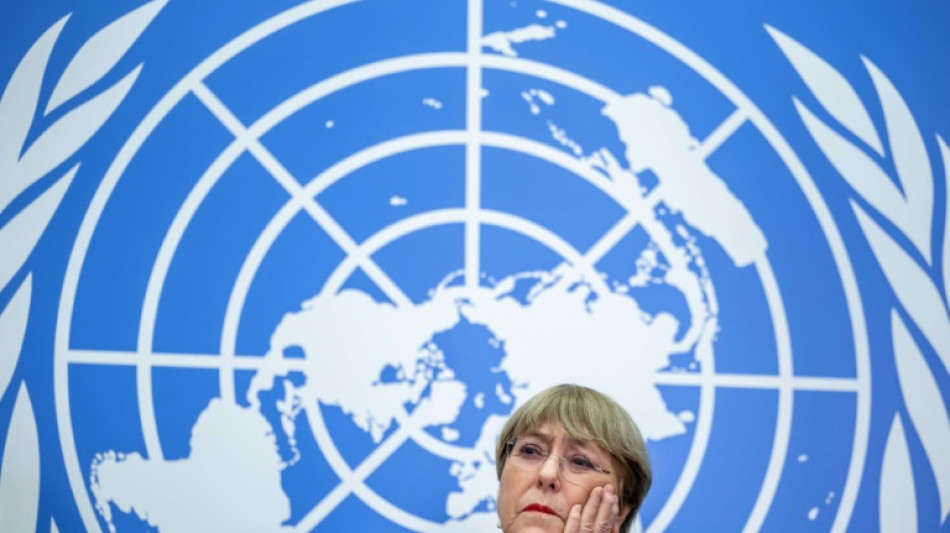

UN rights chief admits 'tremendous pressure' over Xinjiang report
UN rights chief said Thursday she was facing "tremendous pressure" over a long-delayed report on China's Xinjiang region and admitted that she was uncertain when it would appear.
Michelle Bachelet has repeatedly vowed to publish a report on the rights situation in Xinjiang, where Beijing stands accused of detaining more than one million Uyghurs and other Muslim minorities, before her term ends on August 31.
But during her final press conference as UN High Commissioner for Human Rights, her uncertainty was palpable.
"We're trying very hard to do what I promised," Bachelet said Thursday, acknowledging that she has been under "tremendous pressure to publish or not to publish."
"But I will not publish or withhold publication due to any such pressure," she told reporters in Geneva.
"We are working on the report. I had fully intended for it to be released before the end of my mandate."
However, she added, her office had "received substantial input from the government (of China) that we will need to carefully review, as we do every time with any report with any country".
Bachelet completed a long-awaited trip to the Xinjiang region earlier this year that sparked criticism from rights groups.
Campaigners accuse China of a litany of abuses in Xinjiang, including mass incarceration, forced labour, compulsory sterilisation and the destruction of Uyghur cultural and religious sites.
The United States and lawmakers in other Western countries have gone as far as accusing China of committing "genocide" against the minority groups.
Beijing vehemently rejects the claims, and has long insisted it is running vocational training centres in Xinjiang designed to counter extremism.
It claims the allegations are part of a plot by the United States and other Western nations to smear China and contain its rise.
- Repeated delays -
Amid the allegations swirling around abuses in Xinjiang, Bachelet has come under increasing pressure to investigate and speak out about the situation.
Nearly a year ago, the former Chilean president told the UN Human Rights Council an independent evaluation of the situation in Xinjiang was needed, and indicated that her office was finalising a report on the matter.
But the report has been repeatedly delayed amid growing impatience from rights groups and some countries.
Bachelet, whose successor has yet to be announced by UN chief Antonio Guterres, said the enquiries about the report had been non-stop.
"You cannot imagine the numbers of letters, meetings asking for the publication. Huge amounts," she said, adding that for the past year, "every day, every time, every... meeting", she knew "that this issue will come".
The UN rights chief also said she had received a letter signed by dozens of countries "asking for the non-publication".
- 'Very late' -
In May, Bachelet concluded a rare six-day visit to China that also took her to Xinjiang, and she explained Thursday that the report had been delayed to incorporate her findings there.
During her trip, she had urged Beijing to avoid "arbitrary and indiscriminate" measures in Xinjiang -- but faced criticism for her lack of firmness and for capitulating to a stage-managed tour of the region orchestrated by Beijing.
"It was an utter failure," Human Rights Watch chief Ken Roth told AFP.
He stressed the need for Bachelet to release a "strong" Xinjiang report to "make up for that disaster and put us back on a path of putting real pressure on China to end its persecution" of the Uighurs.
But, he lamented, "her report comes very, very late."
"In essence, she's going to publish the report as she walks out the door, which is not ideal."
F.Lecce--IM



